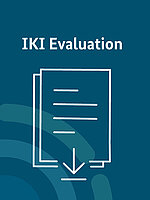Children in South-East Asia fighting climate change
![[Translate to English:]](/legacy/_processed_/9/6/csm_151218_kinder_suedostasien_651_d9e0ae714d.jpg)
The IKI from the Federal Environment Ministry is supporting the environmental education of children in Thailand and the Philippines with around EUR 2.8 million.
Children in particular suffer from the impacts of climate change, as shown by a UNICEF study from November 2015: In natural disasters, they are more in danger than adults, they suffer from climate-related illnesses and malnutrition, and their schooling is interrupted. This limits their rights as children.
However, children also serve as multipliers when they bring their knowledge back to their communities and are especially suited to serve as ‘climate ambassadors’. Germany, together with project partner Plan International, is therefore promoting the introduction of the topic of climate change in the curricula of schools in South-East Asia. In the region, large numbers of people live in limited space, especially on the coasts, where economic activities are concentrated. Floods, storm surges and typhoons threaten the populations in coastal regions in particular.
The new project is the first within the International Climate Initiative (IKI) that directly targets children and links children's rights with climate change education. With it, the Environment Ministry is emphasising that the next generation is an important target group in tackling climate change challenges. At the same time, teachers will receive training in using effective teaching methods to plan and communicate the topic. Pilot projects in Indonesia have shown that play-based learning modules in class and the introduction of a climate change handbook can considerably increase awareness in communities of the dangers of climate change.
The project particularly promotes the national and regional dissemination of teaching materials and methods that have been successful in pilot projects. Teachers, school leaders and staff of local authorities will be invited to visit the pilot projects and personally assess the success of climate education. Furthermore, studies will be financed that examine the success of the various methods implemented up to now. The studies that are particularly suitable will be selected for national and regional expansion.
Cooperation with the local, regional and national decision-makers complements the measures in the schools. Awareness will be raised among the governments on taking into account the needs of children in adapting to climate change.
The link has been copied to the clipboard
Contact
IKI Office
Zukunft – Umwelt – Gesellschaft (ZUG) gGmbH
Stresemannstraße 69-71
10963 Berlin





![[Translate to English:]](/legacy/_processed_/b/b/csm_170929_Welcome_to_a_Climate_Friendly_656x313_eefc1caef4.jpg)
![[Translate to English:]](/legacy/_processed_/7/6/csm_160510_Kaffee_651x313_8dc3a98437.jpg)